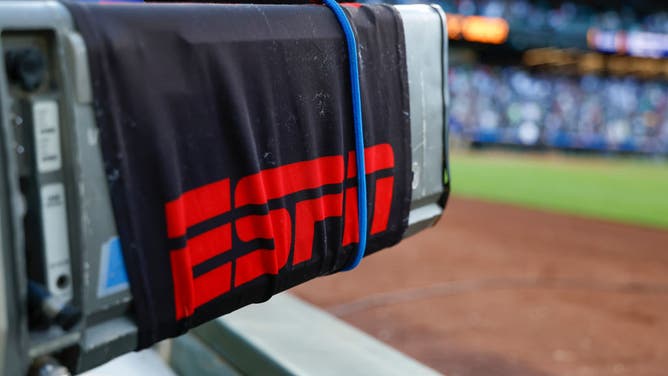ESPN and MLB Both Losers In Upcoming Divorce
On Thursday, ESPN informed MLB that it would opt out of the final three years of its $550 million annual rights agreement after this year, setting a breakup date ahead of the 2026 season.
READ MORE: ESPN WILL NO LONGER BROADCAST MLB GAMES
As in any divorce, outsiders have since tried to determine a winner. Ultimately, it could take a decade to learn who was better off without the other. But in the meantime, both sides look like losers.
ESPN opted out of the deal after deciding that its national rights package for MLB, which included Sunday Night Baseball and the first round of the playoffs, was no longer worth a $550 million annual fee. Speaking to sources within the industry, ESPN is right—sort of. Err, for now.
As The Athletic reported, MLB commissioner Rob Manfred devalued MLB’s national regular-season product by further fragmenting the national scheduling by selling newly created windows to streamers—from Amazon to Apple, from Peacock to Roku.
The issue is that ESPN will launch a direct-to-consumer platform called ESPN Flagship this summer, allowing streamers to view all of ESPN's live sporting events without a cable subscription. The service is weaker without Major League Baseball, the second-most popular professional sports league in America.
Sunday Night Baseball isn't Monday Night Football, but it eats up--no put intended--innings during the summer months when most other sports are in the off-season.
Without it, why would anyone subscribe to ESPN Flagship between July and September?
Moreover, baseball experienced a bit of a moment this past season as Shohei Ohtani and the Los Angeles Dodgers established themselves as bona fide national attractions, which the sport of baseball has lacked for much of the past decade.
At all the times to break up with MLB, this week didn't seem opportune.

(Photo by Brandon Sloter/Getty Images)
As for MLB, Manfred addressed team owners this week with the following memo: "We [did] not think it’s beneficial for us to accept a smaller deal to remain on a shrinking platform."
It's true that ESPN is now in only 53.6 million households, a nearly 50 percent drop from 2011. However, ESPN's decline doesn't ensure MLB will find someone better on the open market.
Let's survey the field.
Neither Amazon nor Apple has found much success in streaming national MLB games. Perhaps one of the two streamers could sell themselves on the idea of adding a more glamorous package--as picking up ESPN's would be--on the surface. But at a $550 million per year price tag? We aren't so sure.
Netflix has officially entered the live sports business, though has remained selective. Regular-season baseball and a few playoff games are hardly on par with the NFL Christmas Day slate and an exclusive right to WWE's Monday Night Raw (an international juggernaut).
For Paramount to justify a price anywhere close to what ESPN pays MLB, the games would have to air on CBS. Don't hold your breath. Boomer television still rates and is cheaply produced.
Where else is there?
There's an argument that the best fits for what MLB currently provides ESPN are the league's two other television partners, Fox and TBS. Selling the package to Fox or TBS could also make sense, considering both of their agreements with MLB expire in 2028.
According to the New York Times, MLB wants "to go to market with all its inventory" in 2028 to maximize its leverage. That would require the league to find someone to take ESPN's package for just three years, making the product less desirable for potential new broadcast partners.
For Fox and TBS, that's not a problem. But again, that doesn't guarantee the networks will view the package worth what ESPN did when it first signed the agreement.
Major League Baseball will find a partner to take on ESPN's package. That's not the worry. The concern is whether the league will have to settle financially, putting in question Manfred's disruption strategy.
ESPN's relationship with MLB was never as cozy as its relationship with the NBA, or NBC's with the NFL. But it worked--for both sides.